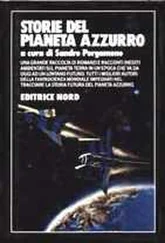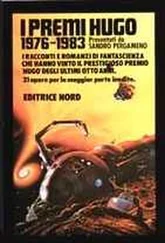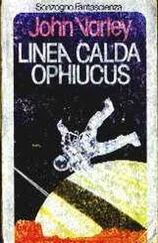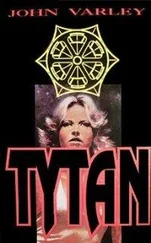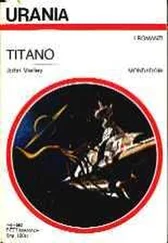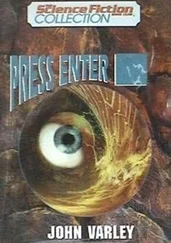John Varley - Mammoth
Здесь есть возможность читать онлайн «John Varley - Mammoth» весь текст электронной книги совершенно бесплатно (целиком полную версию без сокращений). В некоторых случаях можно слушать аудио, скачать через торрент в формате fb2 и присутствует краткое содержание. Жанр: Фантастика и фэнтези, на английском языке. Описание произведения, (предисловие) а так же отзывы посетителей доступны на портале библиотеки ЛибКат.
- Название:Mammoth
- Автор:
- Жанр:
- Год:неизвестен
- ISBN:нет данных
- Рейтинг книги:3 / 5. Голосов: 1
-
Избранное:Добавить в избранное
- Отзывы:
-
Ваша оценка:
- 60
- 1
- 2
- 3
- 4
- 5
Mammoth: краткое содержание, описание и аннотация
Предлагаем к чтению аннотацию, описание, краткое содержание или предисловие (зависит от того, что написал сам автор книги «Mammoth»). Если вы не нашли необходимую информацию о книге — напишите в комментариях, мы постараемся отыскать её.
Mammoth — читать онлайн бесплатно полную книгу (весь текст) целиком
Ниже представлен текст книги, разбитый по страницам. Система сохранения места последней прочитанной страницы, позволяет с удобством читать онлайн бесплатно книгу «Mammoth», без необходимости каждый раз заново искать на чём Вы остановились. Поставьте закладку, и сможете в любой момент перейти на страницу, на которой закончили чтение.
Интервал:
Закладка:
Charlie and the other Inuit nodded. But Rostov clearly had something else to say.
"What's the problem?" Warburton asked.
Rostov reached out and swept away a bit of cloth that had covered the frozen man's left forearm and hand. Warburton saw a gleam of metal. He leaned closer, and saw the man was wearing a wristwatch.
FROM "LITTLE FUZZY, A CHILD OF THE ICE AGE"
All those many long years ago, the life of a mammoth was not a bad one.
Mammoths were the largest animals that walked on the land at that time. There were no predators that could kill them, except when they were very young, and mammoth mothers were very alert to the approach of a big sabertoothed tiger or a lion. (Oh, yes, there were lions in North America in that time, so many years ago! But they didn't bother mammoths.)
Big Mama's herd were Columbian mammoths, and you may be surprised to learn that they were larger than the woolly mammoths who were their close relatives. They had hair, but it was shorter and lighter than woolly mammoth hair, and they didn't have as much of it. That was because they lived most of their lives in warmer climates, and they had lost the thick pelts their ancestors had. Scientists call this adaptation.
They also had large ears, like present-day elephants. Woolly mammoths had very small ears.
Woolly mammoths lived farther north, where it was colder. People think that because we call it the Ice Age, everything was covered with thick glaciers. It is true that vast ice sheets covered parts of North America, but animals as big as mammoths could not survive there. There wasn't enough to eat!
But there were many places where not much snow fell during the year, and food could be found all the year round. We call these places tundras or steppes. This was the domain of the woolly mammoth.
Life was not bad for the mammoth females, but for some it was better than for others.
Life was best of all for Big Mama. She had been the leader, or matriarch, of the herd as long as she could remember, and she had a long memory! None of her sisters or daughters or cousins or nieces or grandchildren ever gave her any trouble. When a male mammoth reached the troublesome age she drove him out. A few whacks from her trunk were always enough to do the trick!
Life was good... but there was an awkward age for mammoths, just as there is for children, known as adolescence. At about the age of fifteen a female mammoth was no longer a child, but not really an adult yet, either.
At that age a female mammoth's thoughts would start to turn to male mammoths, to falling in love, and to having babies.
But mammoth society was arranged according to what scientists call a social hierarchy, or what chicken farmers call a pecking order. That means that one mammoth was on top of the hierarchy—Big Mama—one was in second place, one in third place, and so on.
And that means somebody was on the bottom. That summer it was a seventeen-year-old female named Temba.
6
MATTHEW Wright sat in his aluminum canoe and tried to think like a trout.
He was on Clear Lake, some dozen or so miles south of Mount Hood, in Oregon. He had been told to relax. Take it easy. Take a few months off, find a hobby, something to take your mind off your work. Because, frankly, Matt, people have been remarking about some of your behavior. No, you haven't stripped naked and painted yourself blue and run through the Student Union shouting about the end of the world, but you have been acting... well, a little unusual.
Matthew didn't precisely remember who it was that first suggested trout fishing as a suitable avocation for a scientist on the verge of a nervous breakdown.
"Breakdown? Breakdown?" he muttered. "A long, long ways from a breakdown. I saw A Beautiful Mind, too. That was a breakdown. All I was having was panic attacks."
One of Matthew's colleagues had commented, after seeing some of his preparations for his future hobby, that if Matt had decided to take up snowboarding, step one would have been to redesign snow, from the molecular level upward, and one day we'd all wake up to find that snow was half as cold and twice as slippery as it had been before. Matthew Wright was just that kind of guy, the kind who always starts from basics and goes logically from there.
Step one, in trout fishing, was to understand trout. How does a trout experience the universe? What does he see? What does he think? To find out, Matt first went to Safeway and bought a trout, which he then dissected. He learned a lot, including the fact that fish had hard, clear, spherical lenses in the middle of their eyes.
Using all the data he had collected he wrote a computer program, a virtual trout, in which he could adjust twenty-seven variables. After a long series of runs on the computer he had charts of optimum conditions. He could then cast a virtual fly into his program, and see if his cyber-trout was interested enough to bite.
After a few weeks he bought a metal canoe, a twenty-five-foot trailer, a tackle box for his specialized flies, and a rod and reel. He set out into the wilderness along a road that used to be part of the Oregon Trail, only in reverse, feeling pleasantly like William Clark or Meriwether Lewis.
At Clear Lake he launched his canoe and paddled out to the middle of the lovely little body of water. He opened his laptop and lowered a thermometer into the water, consulted a dandy little handheld weather station from the Oregon Scientific Company, and entered all the resulting data into his computer. The result immediately appeared on the screen: lure 14. He removed that lure—a gaudy one with two long red feathers and a bit of Christmas tree tinsel, one of his favorites—from the tackle box and tied it to the end of the clear nylon line, and prepared to make his first cast.
He figured that, if he did catch a trout, it would have cost him no more than a few thousand dollars per pound. But that wasn't the point, was it? He was doing this to relax, and he had to admit, just rowing out to the center of the lake was relaxing. Matt was a city boy, not used to such silence, to trees so green and thick, to the sweet smell of the mountain air.
He waved the line back and forth over his head as he'd seen casters do in one of the videos he studied, letting out more and more line. Then he cast it out before him.
The hook caught in the shoulder of his REI canvas fisherman's vest, barely missing his ear. The length of line he'd carefully paid out fell down all around him, like spider silk.
"Story of my life," he muttered. "Great on theory, poor on execution."
He was still trying to untangle himself when he heard the sound of an approaching helicopter. He waited while the noisy machine turned abruptly and hovered over the middle of the lake. He could just make out someone in the back looking at him through a big pair of binoculars. Then the chopper flew off to the east, toward where Matt knew there was a clearing large enough for a helicopter to land. He stowed his rod and reel and started paddling for shore.
The helicopter's engine had died by the time he reached shore, and as he pulled the boat up on the sand, a large, balding, powerfully built man in an expensive-looking gray suit was picking his way through the low shrubs and patches of mud that surrounded the shallow lake. Matt started toward him, indifferent to the mud on his L.L. Bean heavy-duty fishing boots.
"You must be the guy I talked to on the phone, Mr. Warburton," Matt said. "And I'm still not interested." "Be that as it may," the man said, stopping a few yards from Matt, "I have to make my pitch. You hung up on me."
Warburton looked momentarily confused. Then he shrugged it off.
"I spoke to some of your colleagues at the university, and it seems you're not that interested in money. You already have your full professorship. So it's a problem, since everybody I ask about finding the top man in the country concerning the physics of time immediately tells me it's Matthew Wright. No second place."
Читать дальшеИнтервал:
Закладка:
Похожие книги на «Mammoth»
Представляем Вашему вниманию похожие книги на «Mammoth» списком для выбора. Мы отобрали схожую по названию и смыслу литературу в надежде предоставить читателям больше вариантов отыскать новые, интересные, ещё непрочитанные произведения.
Обсуждение, отзывы о книге «Mammoth» и просто собственные мнения читателей. Оставьте ваши комментарии, напишите, что Вы думаете о произведении, его смысле или главных героях. Укажите что конкретно понравилось, а что нет, и почему Вы так считаете.

